#ProductPlanning
Ford CEO Forgets Job Title, Pitches Puma ST
Ford CEO Jim Farley announced his fondness for the Puma ST at the start of the week, going so far as to state that he wished the crossover was available in North America and other markets. This resulted in a steady stream of outlets suggesting that he’s totally forgotten his role within the company. As head of the brand, Farley would indeed have meaningful influence in regard to Ford’s distribution choices.
But he probably already knows that and we’re wondering if his social media musings about the rowdy little Puma — which borrows the Fiesta ST engine — were more about testing the waters on a global market push. While we don’t want to rule out the possibility of Farley kissing a photo of the crossover on his nightstand every night as he wonders how to spread its glory, something tells us there may be alternative scenarios.
Ford Says All European Sales Will Be Battery Only by 2030
Another day, another automaker making promises about electric vehicles. Today’s company is Ford, which has vowed to make all European automotive sales electric-only by 2030.
This comes with the footnote of having the ability to soften that promise with plug-in hybrids. But, since this is all about corporate virtue signaling, that’s not what automakers tend to lead with. The industry wants to focus upon net-zero carbon emissions, sustainability, and other buzz terms that allow something to sound environmentally friendly without our needing to check if that’s actually the case. By the time 2030 comes around, only a few dozen people are even going to remember these promises if they’re not kept anyway — giving companies another opportunity to move the goalpost.
Jaguar Going All Electric By 2025, Cancels Electric XJ Sedan
Jaguar Land Rover (JLR) has announced that it plans to have transitioned the Jaguar side of the business entirely to electric vehicles by 2025. Meanwhile, the more profitable Land Rover brand will be receiving its very first EV sometime in 2024. The plan is backed by a £2.5 billion (roughly $3.5 billion USD) investment.
As usual, take these promises with a grain of salt. Practically every manufacturer has underdelivered when it comes to electrification and features existing under the catch-all mobility tag. Jaguar’s current battery-electric vehicle, the I-Pace, hasn’t exactly been a smash hit and its construction is actually contracted out to Magna Steyr in Graz, Austria. Jag also recently abandoned the new XJ model, which has been in development for years. Ironically, the car was supposed to become the brand’s first all-electric sedan.
Audi Boss Paints Gloomy Picture for Small Automobiles
While Europe often appears as a safe haven for punchy subcompacts, the reality is that the continent’s biggest sellers happen to be reasonably sized automobiles equipped with a tepid engine option. The Volkswagen Golf, Toyota Corolla, and Škoda Octavia (especially if you happen to travel through any former satellite states of the Soviet Union) are absolutely everywhere. Europe also has a strong taste for many of the compact crossovers that are popular here in North America, giving subcompacts an increasingly small share of the overall market. And it’s projected to get smaller (globally) under the existing European regulations.
Pint-sized economy vehicles aren’t exactly profit leaders for automakers and their margins are only going to become slimmer. The EU is now reaching a point where building them won’t make sense, as tailpipe regulations will eventually force some amount of electrification. This will jack up their price to a point where the kind of people that might have been considering them will probably shop used. But don’t take our word for it; Audi CEO Markus Duesmann recently said this is probably what will kill the A1.
Report: Japan May Ban Internal Combustion Vehicles Next Decade
The Japan Broadcasting Corporation, better known as NHK, reported that the island nation is considering banning new internal combustion engine cars by the mid-2030s this week. While we will continue to maintain that such an effort seems unrealistic when confronting the current realities of the market, Japan’s alleged plan offers a bit more leeway than proposals pitched in parts of Europe and North America. Nippon also finds itself in a better position in the preferred mixed approach of allowing mixed powertrains, which would allow the industry to continue production gasoline-driven hybrids.
For starters, the Asian country has a fairly comprehensive hydrogen fueling network thanks to its small size. It’s also in a position that would make nationwide EV charging more feasible than regions with plenty of wide-open spaces. But automakers aren’t making a peep on the issue, preferring to leave it up to regulators and the market.
New Details Emerge for Rivian R1T, R1S Configurations
Details of the upcoming Rivian R1T and R1S electric vehicles leaked just hours ahead of the company sharing some equipment options for the various trims and announcing that the online configurations (allowing you to build your own) will launch on November 16th.
As of now, Rivian’s plan involves offering identical trims for the R1T pickup and R1S SUV — splitting the two body styles into Adventure and Explorer packages. While the former is a bit more upscale, both come with a panoramic roof, vegan upholstery, and are big on connectivity. Wi-Fi is embedded and allows for Rivian to issue over-the-air updates. There’s also the First Edition model, which is effectively a gussied up version of the Adventure going to true believers that booked their EVs well in advance.
Mazdaspeed Isn't Coming Back, Which Might Be Okay
We’ve spent the last few years wondering how Mazda’s upmarket push would impact its focus on performance. But keeping tabs gradually devolved into holding out hope that the brand wouldn’t totally snub fun-to-drive products to broaden its appeal. While there’s a wealth of Japanese brands ready to sell you comfortable and well-appointed automobiles, there aren’t many devoting a sizable amount of resources into maintaining engaging driving dynamics for the whole of their lineup. Mazda used to be the exception but now seems interested in banking on its above-average styling and novel luxury aura to drive sales.
It’s not a bad strategy but appears to have come at the expense of performance. Despite Mazda products rarely being famous for the output of their powertrains (unless we’re talking in the context of size), the brand is not making up the difference in handling anymore. It also hasn’t built any new Mazdaspeed performance products in years and doesn’t seem interested in trying.
GM Will Begin Offering Full Sized SUVs in China
General Motors intends to start selling its full-size SUVs in China and is currently showcasing the Chevrolet Tahoe, Chevy Suburban, Cadillac Escalade, and GMC Yukon Denali at the China International Import Expo in Shanghai. That means these vehicles will be imported rather than being manufactured in-country as part of their government-mandated partnerships with Chinese automotive firms.
Why would GM do this in a nation that’s supposed to be prioritizing hyper-efficient electric vehicles? Well, China is currently the world’s largest car market and is on track to be the only major economy on Earth that will grow during the pandemic — the yuan has already hit a 28-month high against the dollar after the U.S. presidential election started skewing in favor of Joe Biden. Meanwhile, General Motors happens to be one of the region’s largest automakers and competition is stiffing between it and the likes of Volkswagen, Geely, Honda, and Toyota.
Opinion: Volkswagen Needs to Cancel the Arteon Immediately
I was thinking about Volkswagen this weekend, as you do. We’ve all seen the recent reports that the company is losing money, betting big on the new electric ID lineup, and about to sell its halo supercar brand Bugatti.
But I think the company has another, product-centric issue in North America as you might’ve guessed by the title above. The Arteon must go.
Could the Ram 700 Foreshadow Something Smaller for North America?
Americans love their pickups but the segment’s sizing has adopted the same methodologies favored by the McNugget industry. Medium-sized trucks are now supersized, leaving full-sized pickups in danger of developing their own gravitational fields. However, it wasn’t all that long ago when the North American market was awash with compact pickups like the original Ford Ranger, Chevrolet S-10, and numerous Japanese alternatives — including the legendary Toyota Hilux (which we just called “the Pickup”). Dodge even had the Dakota for customers who liked D.I.Y. projects but wanted something a little larger and more capable of hauling the necessary materials in a single trip.
Back then, the competition was incredibly fierce. But club cabs gradually evolved into crew cabs and, before anybody knew what happened, every single pickup left on the market had become monstrously large. Though it wasn’t like that everywhere in the world. Plenty of markets still appreciate the handyman’s pickup and Latin America is about to receive an updated one from Fiat Chrysler Automobiles. It’s called the 2021 Ram 700 and serves as the spiritual successor of the Ram 50/Mitsubishi Mighty Maxx.
Fancy Forward: Mercedes-Benz Can No Longer Cater to Plebs
Mercedes-Benz looks poised to retreat from high-volume compacts. During an online corporate strategy meeting held on Tuesday, Daimler CEO Ola Källenius indicated that the luxury subsidiary may have overextended itself.
“Maybe we went at a bit too far to cover each and every space into each and every segment. Compact particularly comes to mind,” he explained. “This is not where the main thrust should go, we should not become a competitor of the volume makers.”
But the company only has itself to blame for that. Around a quarter of the brand’s annual sales come from compact vehicles and they’ve been taking up a larger share of its product portfolio. Källenius seems to think Mercedes has done enough to broaden its appeal and need to refocus on higher-end vehicles with better margins. “Our [current] strategy is designed to avoid non-core activities,” he said, adding that funds will be prioritized for more profitable products.
“We’re not chasing volume, we’re targeting profitable growth.”
Want New Product From Bugatti? Forget About It, Says CEO
There have been some turbulent times at Bugatti in the second half of 2020. In addition to wearing a For Sale sign over at Volkswagen’s headquarters, the company is discovering that The Current Year just might not be the best time to create a new and super-exclusive hypercar. So it isn’t.
Elon Musk Says Tesla to Enter India 'Next Year'
On Friday, Tesla CEO Elon Musk said the automaker was planning to enter the Indian market in 2021. “Next year for sure,” Musk said in a Twitter response that included a photograph of a T-shirt indicating that “India Wants/Loves Tesla.”
The original poster is probably correct in that assumption, too. While Indian vehicle prices average around the U.S. equivalent of $7,400, many models can be had for far cheaper. Vehicle ownership is also extremely limited, with only around 25 in 1,000 people able to afford one. But Transport Minister Nitin Gadkari said the nation had a plan to ensure 15 percent of all new vehicle sales were electric by 2023.
That sounded insanely ambitious to our years when we first heard it in 2018, especially considering India’s original plan called for the same number by 2030 and seemed similarly unrealistic. Central planning rarely goes as mapped but it’s all the rage in most nations now that it can be tied to progressive looking environmental reforms.
Ford Ending Production of Mustang Shelby GT350/R
Even the most capable of race horses eventually reach that day where they’re taken out behind the stables to be shot or stabbed — whatever happens to them after they’ve passed their prime. The same is true in the automotive realm, with the only difference being that the cars are not eventually turned into food for my cat.
Ford has decided to end production of the track-focused Mustang Shelby GT350/R this year. Introduced in 2015, the model uses a 5.2-liter “Voodoo” V8 with a flat-plane crankshaft for some of the nicest naturally aspirated action money can buy. On the current model year (which will also be the last) 526 horsepower is sent through a Tremec six-speed, with performance further aided by a transmission cooler, limited slip rear axle, track-worthy suspension, upgraded Brembo brakes and super-sticky Michelin Pilot Sport Cup 2 rubber.
If you’re one of the few individuals who needs a good track-day vehicle, you could certainly do worse. And now you’ll have to because dealer orders already ended.
Sell Off? Volkswagen Group Rethinks Its Position on Supercars
Volkswagen Group, the largest automotive manufacturer in the world, is reexamining its relationship with high-performance subsidiaries as it continues pouring money into electrification. Burned by a diesel emissions scandal of its own making half a decade ago, VW leadership now views electric cars as the only path forward — especially in regard to its more mainstream brands. While they aren’t getting identical treatments, VW, Audi, Seat, and Skoda are all presumed to be adding EVs to their production lines over the next few years.
Porsche’s long-term strategy also seems heavily dependent on battery power, but the road ahead is much less clear for ultra-premium brands like Lamborghini and Bugatti. With volumes and lineups order of magnitudes smaller than the core brands, Volkswagen would be incurring a gigantic expense to develop upper-echelon performance EVs that might not appeal to their existing fans. The same goes for upscale motorcycle brand Ducati as the two-wheeled world has become divided on electric and gas-powered bikes. Volkswagen’s management board and directors have decided the situation calls for an all-hands meeting in November to decide what should be done and how to remain financially prudent in a period of economic strife.



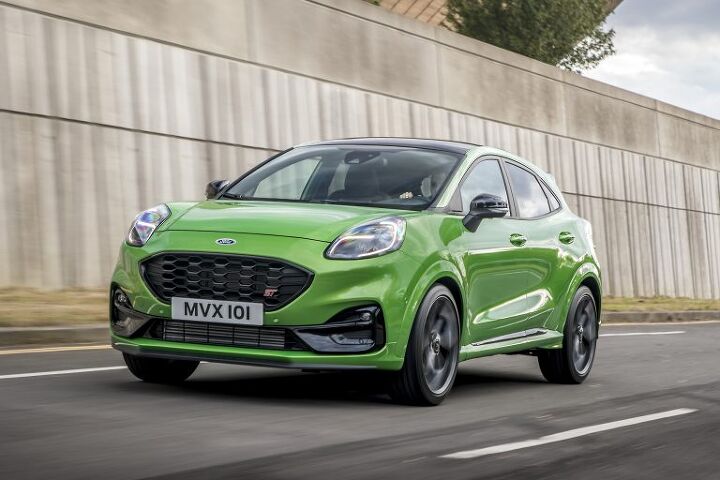
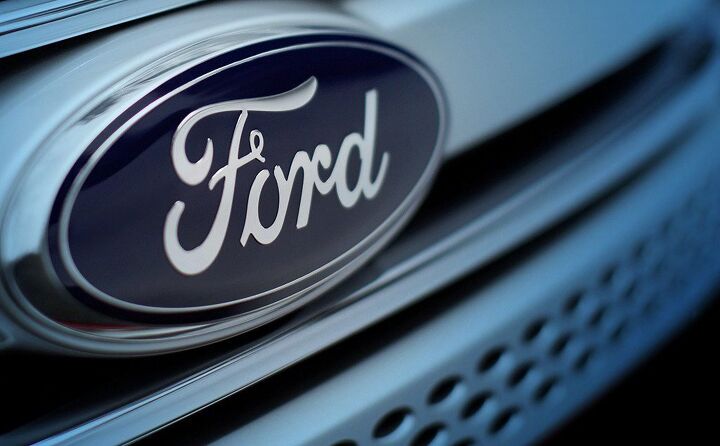
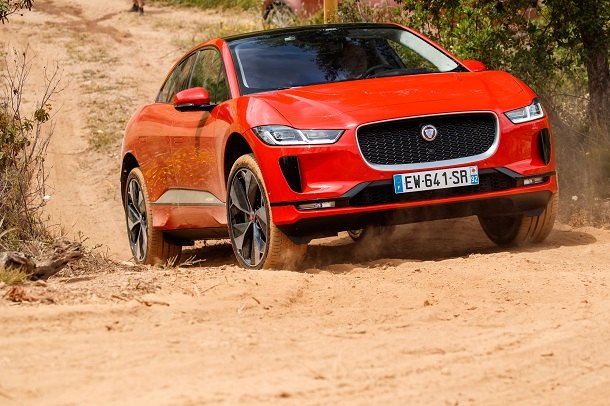



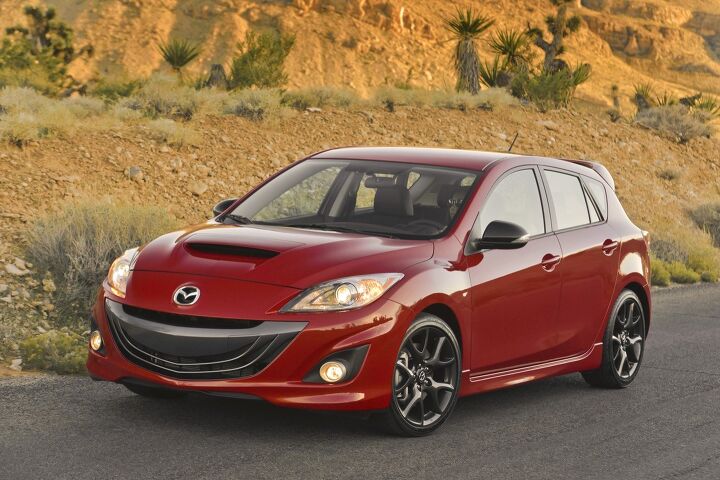

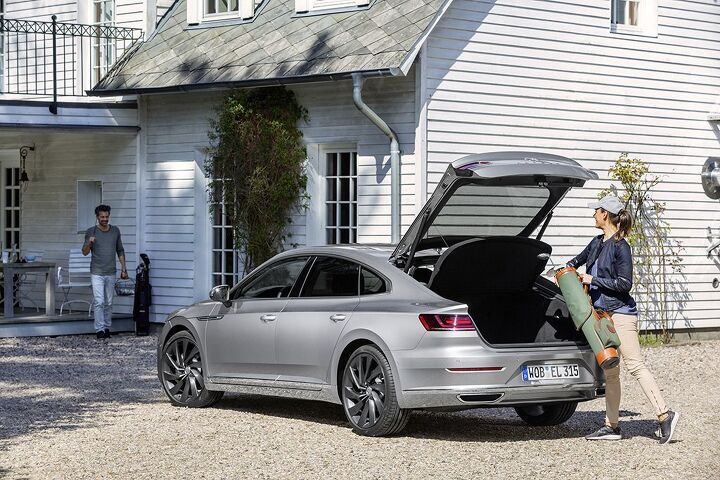
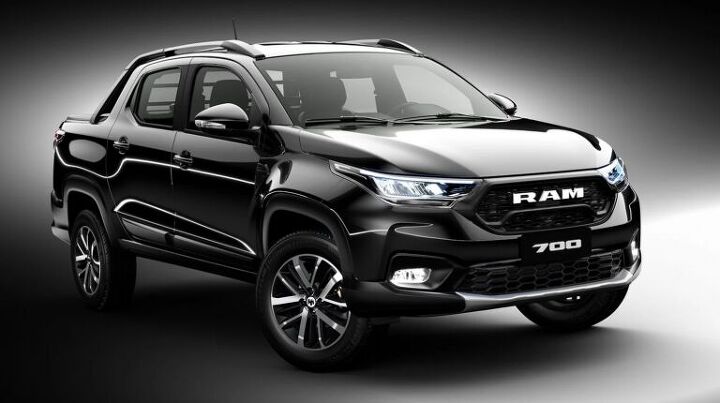

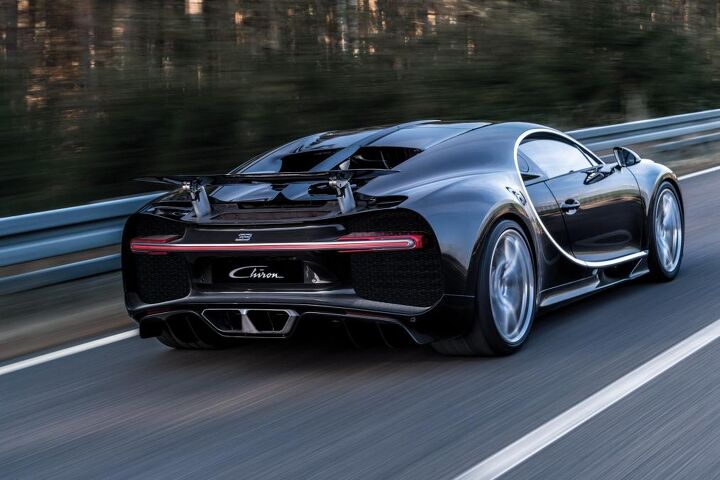















Recent Comments